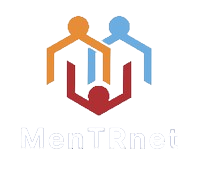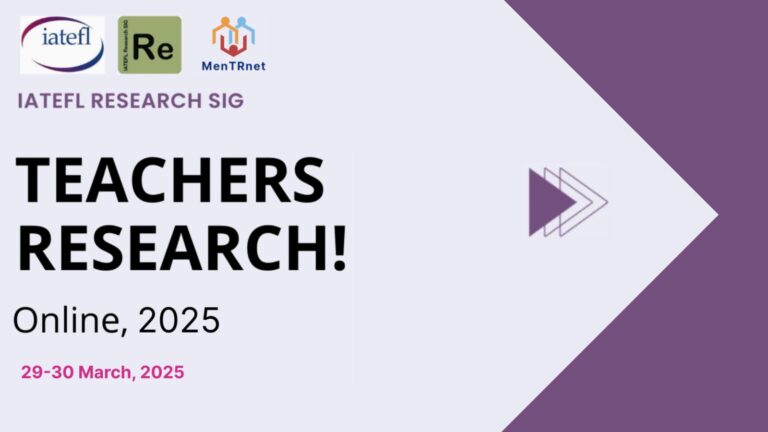
In this post, Rachanee Dersingh and Sonthida Keyuravong tell us about a thriving EAR project in Thailand that has been running for three years. The post is based on a talk they gave as part of the International Festival of Mentoring Teacher Research and you can watch the video recording here. If you would like to find out more about this exciting project and access its publications, please head to this webpage: EAR-Thailand #2024 project.
Introduction
The EAR-Th (Exploratory Action Research in Thailand) project aimed to address the underdevelopment of classroom research skills among Thai teachers, a crucial area that often remains neglected. Teachers in Thailand face challenges in critically analyzing their classroom practices, and classroom research is often perceived as overly academic and inaccessible. Although the Ministry of Education introduced initiatives requiring teachers to identify classroom challenges and develop evidence-based solutions, training in classroom research remained limited, was typically short-term, and lacked long-term support structures. To bridge this gap, the British Council Thailand and King Mongkut’s University of Technology Thonburi launched an Exploratory Action Research project to assist schoolteachers in doing classroom research.
Project Structure and Evolution
In 2022, a pilot project was launched with the primary objectives of helping teachers develop classroom research skills and raising awareness of evidence-based decision-making. During its first year, the project adopted a simple structure where international mentors guided local teachers through online webinars and mentoring sessions. By the end of the program, it was evident that local teachers were still relying heavily on international mentors for guidance and support. While this collaboration is valuable, it creates a dependency that can limit the long-term success of the program. This highlights the importance of developing local mentors to ensure long-term sustainability
In order to address the need for long-term sustainability, the EAR-Th program in 2023 aimed not only to train schoolteachers in EAR, but also to develop local mentors to create a community of teacher-researchers in Thailand. The project model evolved to incorporate local mentors who were trained by international experts. This aimed to reduce dependence on international mentors while building local capacity. Compared to the structure in 2022, an additional layer was introduced: mentor trainees. The new structure (see Figure 1) involved the international experts as lead mentors (LM), training local mentors (MT1) to guide schoolteachers (ST) in conducting EAR. At the same time, lead mentors continued mentoring some schoolteachers directly.

For 2024, an additional layer was added (Figure 2). Local mentors trained in 2023 (referred to as MT1s) began training a new group of local mentor trainees (MT2s), still supported by the international lead mentors (LMs). This step prepared the MT1s to transition into lead mentor roles in the future, further strengthening the project’s sustainability framework.

Activities and Outcomes
The 2023 and 2024 programs involved a variety of activities, including:
- Online and on-site training: Teachers participated in training sessions covering research methodologies and evidence-based teaching strategies. The three and a half day on-site training happened only in the 2024 program at the initial stage of the program.
- Mentoring sessions: Teachers were paired with mentors (this could be a LM, MT1 or MT2) to guide them in their research projects.
- Roundtable discussion: Teachers and mentors shared their experiences in each stage of doing and mentoring EAR.
- Dissemination of research: Teachers and mentors shared their findings at national and international conferences and webinars.

In three years, the project has trained 109 teachers and 47 local mentors across Thailand, with ongoing efforts to expand and strengthen the mentoring model.
Impact and Achievements
The project had a positive impact, including:
- Improved perceptions of classroom research: Teachers developed a greater understanding of the value of research in improving teaching practices. Their perceptions of classroom research became more positive as they realized it was more manageable than they had initially thought.
- Enhanced problem-solving approaches: Teachers were able to tackle classroom challenges using evidence-based methods.
- Stronger teacher-student relationships: Research findings led to more effective teaching practices, which in turn fostered better relationships between teachers and students.
- Building a teacher research community: The project helped lay the foundation for a community of teacher researchers in Thailand, promoting continuous professional development.
Key Lessons Learned
Managing a program of this scale comes with its fair share of challenges. One major issue we faced was time management. Participants were already juggling their regular responsibilities, and mentoring or conducting EAR added another layer to their workload. The program’s reliance on online meetings posed additional challenges, especially for participants coordinating with international experts in different time zones. Unexpected issues, such as sudden changes in job roles or personal circumstances, also made it difficult for some participants to stay on track. To help overcome these obstacles, we introduced the concept of “accountable flexibility”, an approach that encouraged participants to adapt to change while ensuring their responsibilities were met. This balance between flexibility and accountability was crucial for maintaining the program’s progress and achieving its goals.
Another challenge was the dropout rate among EAR mentees. These mentees were essential for mentors, particularly MT1s and MT2s, to practice and refine their mentoring skills. In 2022, the dropout rate was about 25%, but this figure nearly doubled to 50% in 2023. To address this, our selection process became stricter; we interviewed and selected individuals based on their sense of responsibility and commitment. As a result, the dropout rate dropped to approximately 20% in 2024. While this is an improvement, we aim to lower it even further in the coming years.
Partnerships also emerged as a critical factor for the program’s success. Initially, the program was supported by British Council (BC) Thailand in collaboration with King Mongkut’s University of Technology Thonburi. BC Thailand played a pivotal role in initiating the project, sharing research findings, and fostering a supportive network for teachers. However, as the program grew, it became clear that collaboration between just two organizations was not enough to meet the program’s expanding needs. Expanding our network of partners proved to be a turning point. The program successfully enlisted the support of the Equity Educational Foundation (EEF), the Regional English Language Office (RELO) of the U.S. Embassy, the Thai Ministry of Education, and the Association of English teachers in Thailand (Thailand TESOL). These organizations provided financial support and contributed valuable resources to ensure the program’s sustainability and growth.
Through these efforts, the program continues to evolve, addressing challenges head-on and adapting to the needs of participants and stakeholders alike.
Status and Future plans for English Teacher-Researchers in Thailand
The program envisions a sustainable future for English teacher-researchers in Thailand through a series of long-term initiatives. One of the key goals is to establish an online EAR community, tailored to the needs of teacher-researchers. This e-Community will serve as a hub of resources and support, offering access to experienced mentors who can guide teachers through their research journey. The platform will provide valuable resources such as publications, handbooks, and training materials, ensuring that teachers have the tools needed to enhance their practice. Teachers will also have opportunities to share their projects and engage with peers, fostering collaboration and mutual learning. At this moment, a dedicated webpage on the British Council site continues to provide updates on the project, including webinars, publications, and other relevant information.
Another important aspect of the plan is to encourage sustained teacher-research. Developing EAR skills requires ongoing effort, as conducting EAR research only once is insufficient to achieve meaningful and lasting results. To truly understand and address the complexities of teaching and learning, teachers need to engage in continuous research. Graduates of the program will be encouraged to continue conducting research, refining their teaching methods, and contributing to the overall improvement of educational practices. The online EAR community will play a crucial role in facilitating this continuity by providing ongoing support and a platform for sharing insights and innovations.
A further goal is to expand the community across all regions of Thailand in the coming years. This expansion aims to introduce more Thai teachers to the concept of classroom research which they can initiate and carry out independently, distinct from traditional academic research. With the right support, including experienced mentors, accessible resources, and a strong network of like-minded educators, the program aims to inspire more teachers to adopt this research method. Over time, we hope this initiative will foster a culture of reflective practice and professional growth among teachers, ultimately enhancing teaching quality and benefiting students nationwide.
Conclusion
Over these three years, the program has significantly advanced the development of classroom research skills among Thai teachers and laid the foundation for a sustainable teacher-research community. With plans to create an e-Community for continued teacher-research and professional development, the project is poised to have a long-lasting impact on Thai education, ultimately contributing to better teaching practices and influencing policy change.





This sounds like a very well-thought-out teacher-research programme including all the best features of similar initiatives. The mentoring structure is exemplary and the support provided to teacher-researchers and local mentors is extensive. I am especially interested in how the e-Community will build up, because our own MenTRnet community has shown that working in such communities of practice enhances all aspects of teacher-research, and provides a space for development and the sharing of experience.
This initiative is truly inspiring as the model that’s evolving is one where dependence on international expertise is being reduced gradually to help long term sustainability of teacher research within the country. I am interested to know if teacher researchers also see benefits of their researching on students’ learning aside from their own professional development. Sharing of experience is a highlight in all teacher research initiatives which is happening not just within the region but across the globe.
[…] a mentor within a professional development program in Thailand, my ultimate goal is guiding a teacher-researcher to reflect on and articulate their own learning. […]